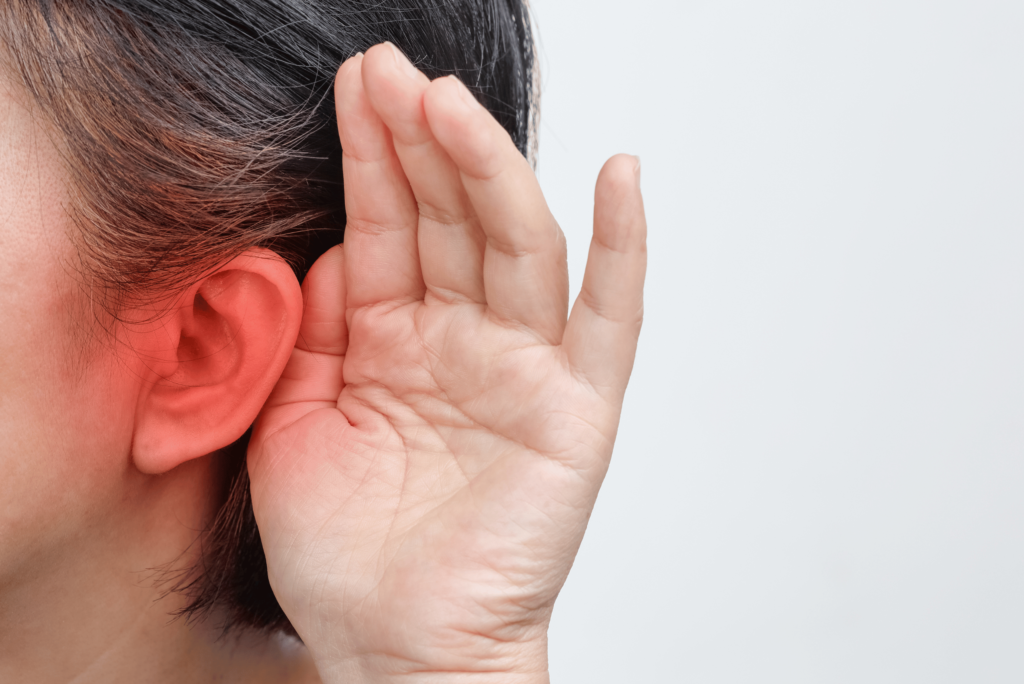Signs and Symptoms of Hearing Loss
Signs and symptoms of hearing loss. Hearing impairment is when an individual loses the ability to hear in either one or both ears.
Deafness is usually the result of inner ear or nerve damage. It may be caused by a congenital defect, injury, disease, certain medication, exposure to loud noise, or aging. A person suffering from this disease may often lead to depression, anxiety, and health problems. Hearing loss may be temporary or permanent that condition occurs in hearing impairment is chronic ear infections.

SIGNS AND SYMPTOMS OF HEARING LOSS
- Is hearing over a telephone causing you difficulty?
- Are you not able to follow the conversation when two people are talking to you?
- Have you always tried to increase the volume on-the TV or Radio to hear well?
- Have you tried to strain yourself to follow a conversation?
- Has hearing in a noisy background caused trouble?
- Have you found yourself asking people to repeat themselves?
- Have you seen people you talk to mumble to themselves?
- Have you at any time misunderstood people and replied inappropriately?
- Have you faced difficulty in understanding the speech of women and children?
- Have people been annoyed as they have been misunderstood?
- Ringing in the ears, known as tinnitus.
CAUSES OF HEARING LOSS
Major causes of hearing loss include
- Congenital or early onset childhood hearing loss,
- Chronic middle ear infections,
- Noise-induced hearing loss,
- Age-related hearing loss, and
- Ototoxic drugs that damage the inner ear.
- The impacts of hearing loss are broad and can be profound.
- Smoking & Vaping
- Diabetes

Damage to the inner ear – Aging and loud noise can cause wear and tear on the hairs or nerve cells in the cochlea that send sound signals to the brain. Damaged or missing hairs or nerve cells don’t send electrical signals well. This causes hearing loss. Higher pitched tone may seem muffled. It may be hard to pick out words against background noise.
Ear infection or unusual bone growths or tumours –

Build-up of earwax – Over time, earwax can block the ear canal and keep sound waves from passing through. Earwax removal can help restore hearing.
Factors that damage or lead to loss of the hairs and nerve cells in the inner ear include:

Aging: The inner ear breaks down over time.
Loud noise: Being around loud sounds can damage the cells of the inner ear. Damage can happen by being around loud noises over time. Or the damage can come from a short blast of noise, such as from a gunshot.
Heredity : Your genes may make you more likely to have ear damage from sound or from aging.
Noises on the job: Jobs where loud noise is constant, such as farming, construction or factory work, can lead to damage inside the ear.
Noises at play: Exposure to explosive noises, such as from firearms and jet engines, can cause immediate, permanent hearing loss. Other activities with dangerously high noise levels include snowmobiling, motorcycling, carpentry or listening to loud music.
Some medicines: These include the antibiotic gentamicin, sildenafil (Viagra) and certain medicines used to treat cancer, which can damage the inner ear. Very high doses of aspirin, other pain relievers, antimalarial drugs or loop diuretics can cause short-term effects on hearing. These include ringing in the ears, also known as tinnitus, or hearing loss.
Some illnesses. Illnesses such as meningitis that cause high fever can harm the cochlea.
